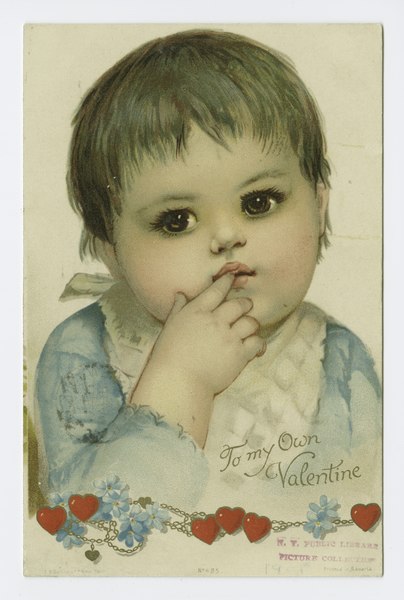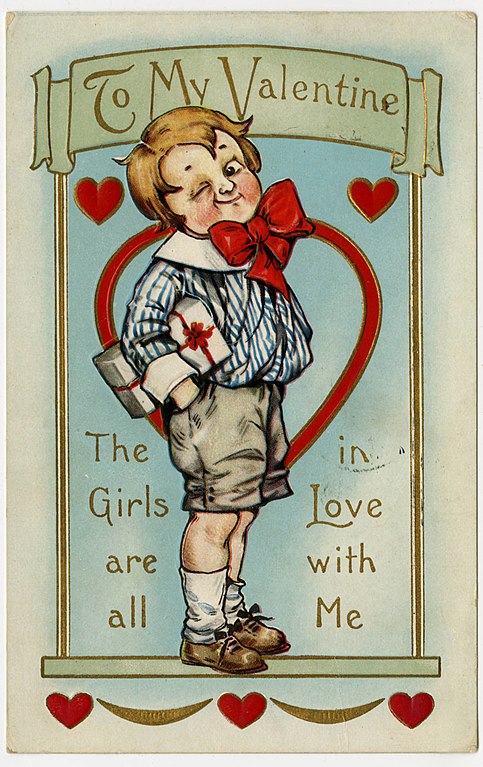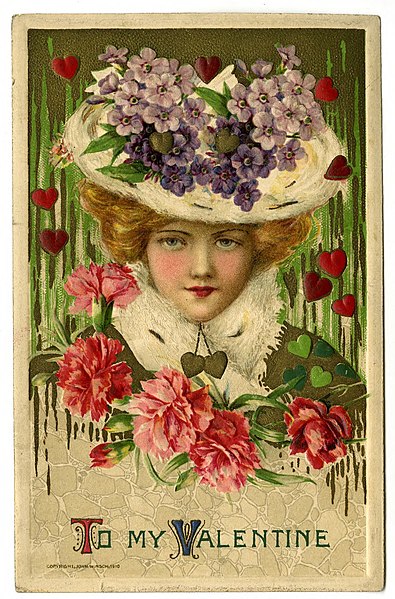
On February 14, Thammasat University students may enjoy some reading appropriate for the holiday at the TU Library.
Valentine’s Day, also called Saint Valentine’s Day, is celebrated each year on February 14.
It originated as a Christian holiday to honor a martyr named Valentine and through later folk traditions, it has also become a cultural, religious and commercial celebration of romance and love in many regions of the world.
Valentine’s Day customs – sending greeting cards known as valentines, offering candy and presenting flowers – developed in early modern England and spread throughout the English-speaking world in the 1800s.
In the later 1900s and after, these customs spread to other countries.
Yet expressions of love already existed long before that as Ancient Love Letters: Form, Themes, Approaches, a book in the TU Library collection, shows, gathering documents from over 1500 years ago.
The TU Library collection also includes some Asian examples of love poetry from the Kokin Wakashū (Collection of Japanese Poems of Ancient and Modern Times), commonly abbreviated as Kokinshū, an imperial anthology conceived by Emperor Uda and published around 905.
Another noteworthy anthology owned by the TU Library is Love Poems of Ancient India: An Anthology of Songs in Prakrit, Tamil, and Sanskrit.

From a Western perspective, The Love Poems of John Donne features verse by an English poet, scholar, and soldier who later became a cleric in the Church of England.
Under royal patronage, in the 1600s he was made Dean of St Paul’s Cathedral in London.
Donne’s work sometimes reminds us that memorable love poems are written about disappointment with love. For example, among poems that are out of copyright:
Go and Catch a Falling Star
Go and catch a falling star;
Get with child a mandrake root;
Tell me where all past years are,
Or who cleft the Devil’s foot;
Teach me to hear mermaids singing,
Or to keep off envy’s stinging;
And find
What wind
Serves t’advance an honest mind.
If thou beest born to strange sights,
Things invisible to see,
Ride ten thousand days and nights
Till age snow white hairs on thee:
Thou, when thou return’st, wilt tell me
All strange wonders that befell thee,
And swear,
‘Nowhere
Lives a woman true and fair.’
If thou find’st one, let me know:
Such a pilgrimage were sweet;
Yet do not: I would not go,
Though at next door we might meet:
Though she were true when you met her,
And last till you write your letter,
Yet she
Will be
False, ere I come, to two or three.
Another English poet from the 1600s was Andrew Marvell, who tried to persuade a reluctant woman in this poem:
To His Coy Mistress
Had we but world enough and time,
This coyness, lady, were no crime.
We would sit down, and think which way
To walk, and pass our long love’s day.
Thou by the Indian Ganges’ side
Shouldst rubies find; I by the tide
Of Humber would complain. I would
Love you ten years before the flood,
And you should, if you please, refuse
Till the conversion of the Jews.
My vegetable love should grow
Vaster than empires and more slow;
An hundred years should go to praise
Thine eyes, and on thy forehead gaze;
Two hundred to adore each breast,
But thirty thousand to the rest;
An age at least to every part,
And the last age should show your heart.
For, lady, you deserve this state,
Nor would I love at lower rate.
But at my back I always hear
Time’s wingèd chariot hurrying near;
And yonder all before us lie
Deserts of vast eternity.
Thy beauty shall no more be found;
Nor, in thy marble vault, shall sound
My echoing song; then worms shall try
That long-preserved virginity,
And your quaint honour turn to dust,
And into ashes all my lust;
The grave’s a fine and private place,
But none, I think, do there embrace. […]

Even earlier, in the 1500s, another English poet, Michael Drayton, wrote about a relationship breaking up:
Since There’s No Help
Since there’s no help, come let us kiss and part;
Nay, I have done, you get no more of me,
And I am glad, yea glad with all my heart
That thus so cleanly I myself can free;
Shake hands forever, cancel all our vows,
And when we meet at any time again,
Be it not seen in either of our brows
That we one jot of former love retain.
Now at the last gasp of Love’s latest breath,
When, his pulse failing, Passion speechless lies,
When Faith is kneeling by his bed of death,
And Innocence is closing up his eyes,
Now if thou wouldst, when all have given him over,
From death to life thou mightst him yet recover.

Another book in the TU Library collection, A Little Treasury Of Love Poems – From Chaucer to Dylan Thomas, offers a wider range of literary styles.
The American poet Anne Bradstreet was celebrated in the 1600s, for poems like this expression of love for her husband:
To My Dear and Loving Husband
If ever two were one, then surely we.
If ever man were loved by wife, then thee.
If ever wife was happy in a man,
Compare with me, ye women, if you can.
I prize thy love more than whole mines of gold,
Or all the riches that the East doth hold.
My love is such that rivers cannot quench,
Nor ought but love from thee give recompense.
Thy love is such I can no way repay;
The heavens reward thee manifold, I pray.
Then while we live, in love let’s so persever,
That when we live no more, we may live ever.
A British poet who also wrote about marital love was Elizabeth Barrett Browning, who lived in the 1800s:
How Do I Love Thee?
How do I love thee? Let me count the ways.
I love thee to the depth and breadth and height
My soul can reach, when feeling out of sight
For the ends of being and ideal grace.
I love thee to the level of every day’s
Most quiet need, by sun and candle-light.
I love thee freely, as men strive for right.
I love thee purely, as they turn from praise.
I love thee with the passion put to use
In my old griefs, and with my childhood’s faith.
I love thee with a love I seemed to lose
With my lost saints. I love thee with the breath,
Smiles, tears, of all my life; and, if God choose,
I shall but love thee better after death.
The English poet Christina Rossetti wrote in the 1800s about the possibility or hope of love:
Somewhere or Other
Somewhere or other there must surely be
The face not seen, the voice not heard,
The heart that not yet—never yet—ah me!
Made answer to my word.
Somewhere or other, may be near or far;
Past land and sea, clean out of sight;
Beyond the wandering moon, beyond the star
That tracks her night by night.
Somewhere or other, may be far or near;
With just a wall, a hedge, between;
With just the last leaves of the dying year
Fallen on a turf grown green.

(All images courtesy of Wikimedia Commons)
